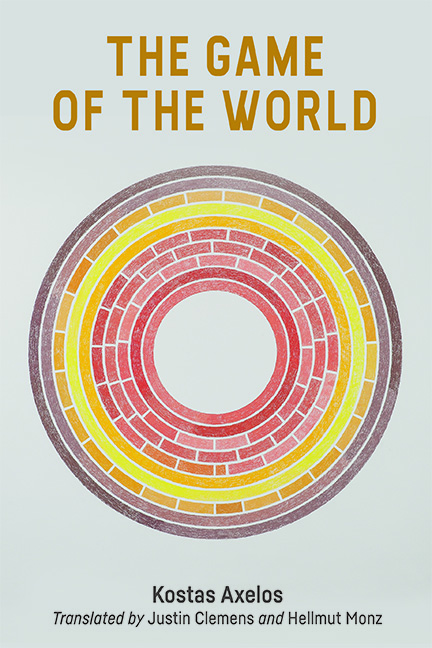Book contents
- Frontmatter
- Contents
- Translators’ Introduction
- Prelude
- Opening. The Great Powers and the Elementary Forces of the World
- I Logos. The Language and Thought of Man and the World
- II That. The Play of the Being in Becoming of the Fragmentary and Fragmented Totality of the Multidimensional and Open World
- III God-Problem
- IV Physis. The Cosmic World
- V The Human in the World
- VI World History
- VII The World of Poetry and Art
- VIII Being-Nothingness, Everything-Nothing, the Unworldly World
- IX The Game of the World
- Notes
- Analytical Table
II - That. The Play of the Being in Becoming of the Fragmentary and Fragmented Totality of the Multidimensional and Open World
Published online by Cambridge University Press: 17 November 2023
- Frontmatter
- Contents
- Translators’ Introduction
- Prelude
- Opening. The Great Powers and the Elementary Forces of the World
- I Logos. The Language and Thought of Man and the World
- II That. The Play of the Being in Becoming of the Fragmentary and Fragmented Totality of the Multidimensional and Open World
- III God-Problem
- IV Physis. The Cosmic World
- V The Human in the World
- VI World History
- VII The World of Poetry and Art
- VIII Being-Nothingness, Everything-Nothing, the Unworldly World
- IX The Game of the World
- Notes
- Analytical Table
Summary
That ‘is’: being of all that is, and nothingness, becoming, movement, positivity and negativity, space-time, unity, multiplicity and totality, world open or closed, finite or infinite or indefinite.
That ‘is’: the being in becoming of the fragmentary and fragmented totality of the multidimensional and open world – to name it in a not too dissociative language – as it constitutes itself in and through its encounter with the human being; it is rather inside this encounter that the Same says and makes itself. For we can neither depart from the being of the human to reach being in becoming, nor do the inverse. We are always on the way to the heart of the Same – always problematic – always in the interlude.
That ‘is’: the play of all its unveilings and all its occultations, all the readings and interpretations it arouses and troubles, all the machinations it provokes and breaks. This play is the One-All, the One-Multiple, Being-Nothingness, the All-Nothing.
That ‘is’: the horizon of horizons that withdraws; one could call it simply World. You call that a world? The human is not without the world and the world is not – that is to say, is not said and done, is not a problem – without the human. None of them is the other and none of them goes without the other. They make neither one nor two. How, then, do they institute the Same? Behold the game.
That ‘is’: logos as language and thought of the world said by the human, spirit, idea, start and end of all that is, God, measure of creation, and physis as cosmic totality, universe of universes, energetic matter in mechanical and/or dialectical movement, historical humanity, producer and transformer of what it is and what it is not, technical scaffolding of reasons, actions, networks and passions that assemble and combine beings and things.
Each of the great designations of That, being, nothingness and becoming, space-time, unity, totality and world, God, nature, human and play, is not what it is and is what it is not.
That has been said and named, called and invoked, by remaining unthought and unprecedented in terms of enigma, of secrecy, of mystery, to become like a question and a problem, without escaping the unspeakable and the unnameable.
- Type
- Chapter
- Information
- The Game of the World , pp. 163 - 228Publisher: Edinburgh University PressPrint publication year: 2023



